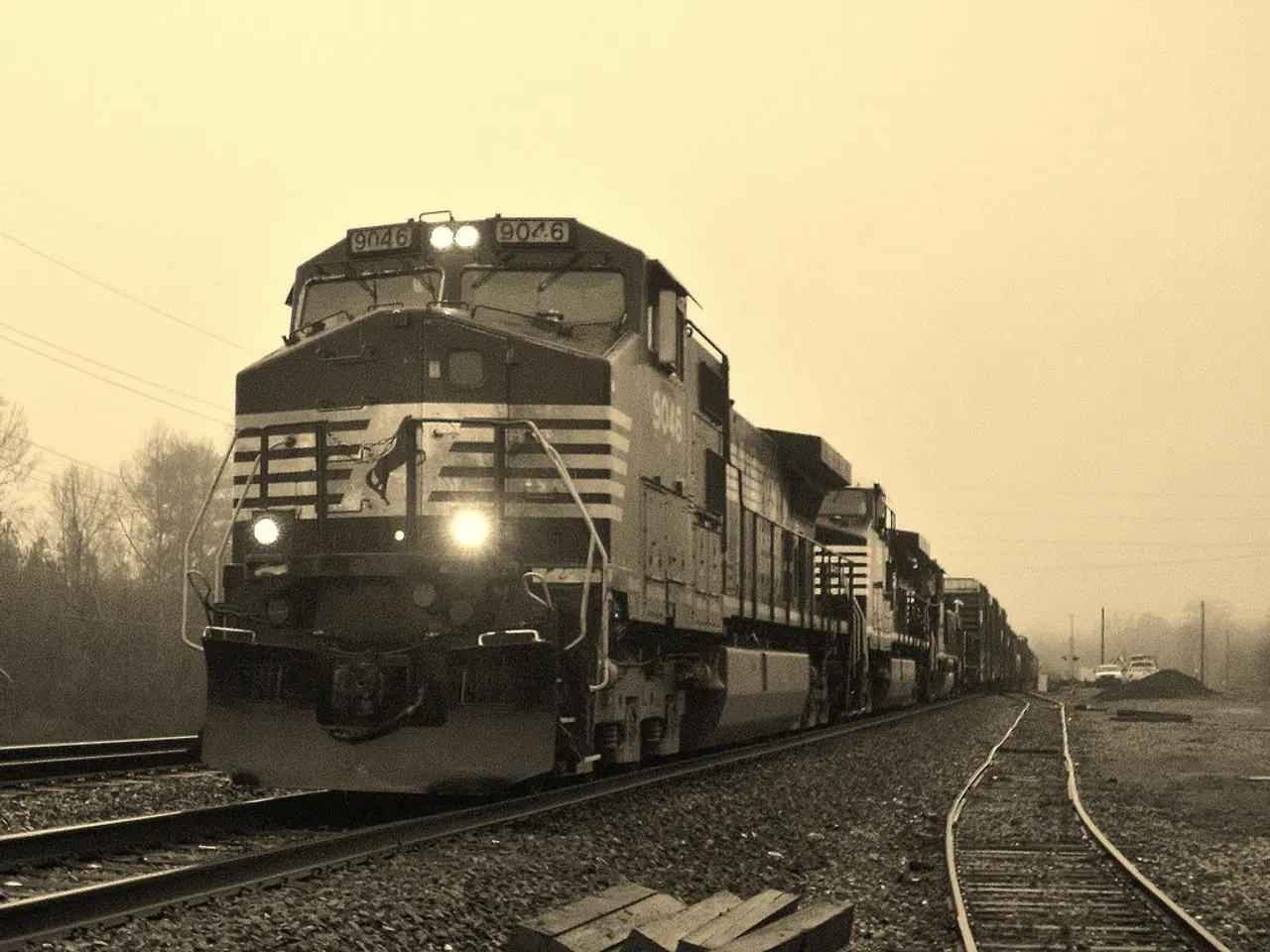Railway Chief Executive Officer Contending with These Obstacles - Railway manager encounters various obstacles ahead
Deutsche Bahn, Germany's national railway company, is gearing up for a change at the top, with the search for a new CEO underway. The current CEO, Richard Lutz, is set to step down, and potential successors include Siemens Mobility CEO Michael Peter, Deutsche Bahn's regional transport head Evelyn Palla, and Anna-Theresa Korbutt, managing director of Hamburg’s public transport authority (HVV).
The new CEO will inherit a company grappling with persistent issues of punctuality and customer satisfaction. According to recent statistics, fewer than two-thirds of stops are made on time in long-distance traffic, leading to widespread public dissatisfaction. This poor performance is partly due to years of underinvestment, which has caused infrastructure bottlenecks and poor conditions requiring urgent modernization.
The new CEO will also need to navigate complex relations with federal and state governments, labor unions, and comply with EU regulations. Financially, the company has been posting losses for years, with a reported €1.8 billion loss in 2024 and a net loss of €760 million in the first half of 2025.
The broader economic environment adds pressure on funding and operational stability. The CEO will also need to address criticisms of DB Cargo, the company's freight services, and engage in wage negotiations with the powerful train drivers’ union, the Gewerkschaft Deutscher Lokomotivführer (GDL), which strongly influences labor relations and service stability.
Anna-Theresa Korbutt, favoured by the passenger association Pro Bahn, is seen as a strong contender due to her operational expertise and willingness to challenge entrenched structures. However, stakeholders emphasise that appointing a new CEO alone is insufficient; an organisational overhaul and a competent team around the CEO will be necessary to overcome these multifaceted challenges.
The focus of DB's current efforts is on maintaining the existing network, with little money left for new projects, which are crucial for achieving the goals of the "Germany timetable." The upcoming wage negotiations with the GDL, and the potential for strikes, could burden the start of the new CEO.
DB cites worn-out, heavily used tracks as the main reason for delays, and plans to renovate around 40 heavily used routes by 2036. The strategy aims to make Deutsche Bahn "faster, leaner, more powerful, and more economical." DB Cargo, the transport subsidiary, must return to profitability next year as dictated by the EU Commission.
The Green party rail expert Matthias Gastel believes that the company needs stronger control and management from the federal government, and adequate and reliable funding for its infrastructure. The new CEO will face challenges that require long-term solutions and will be under close scrutiny from politics and frustrated customers.
The approach is generally supported in the industry, provided the new CEO can secure funding in the coming years. Federal Transport Minister Patrick Schnieder is set to unveil a new rail strategy on September 22, with a focus on improving punctuality, safety, and cleanliness. The strategy announcement is eagerly awaited as an indication of the future direction under new leadership.
The forthcoming CEO of Deutsche Bahn, Germany's national railway company, will inherit a challenging mission, involving not only addressing issues of punctuality and customer satisfaction, but also navigating complex relations with various stakeholders such as federal and state governments, labor unions, and the EU, including compliance with Council Regulation (EEC) No 2052/88 of 20 December 1988 on the common organization of the market in beef and veal. Moreover, the new CEO will need to engage in significant financial and operational restructuring to overcome DB's persistent losses and modernize its worn-out infrastructure.
In the sporting field, the new CEO's tenure at Deutsche Bahn will rival the competitive nature of athletes, as they strive to transform the company from a persistent loser to a leaner, more powerful, and more economical entity, reminiscent of a sportsperson training for a major event.






